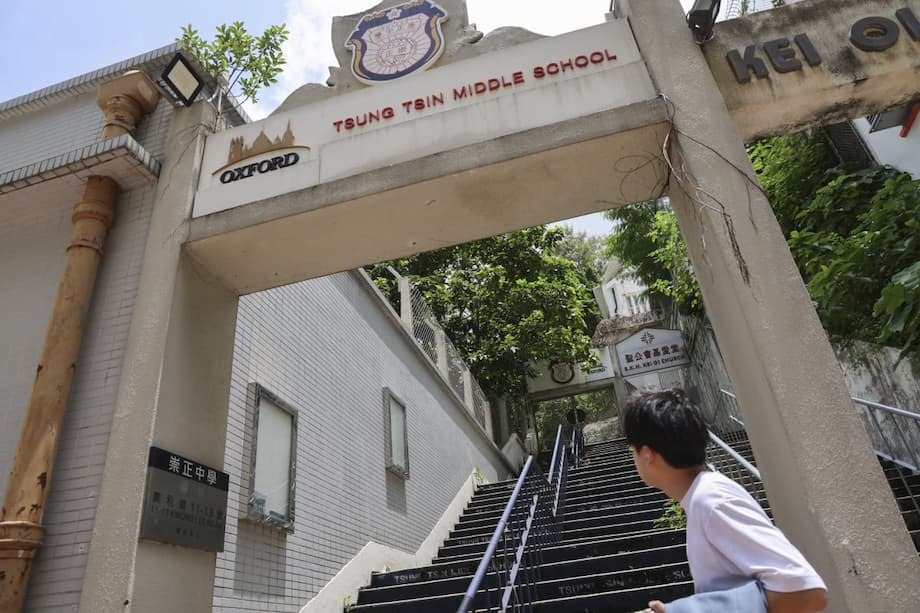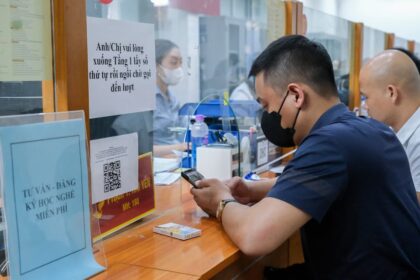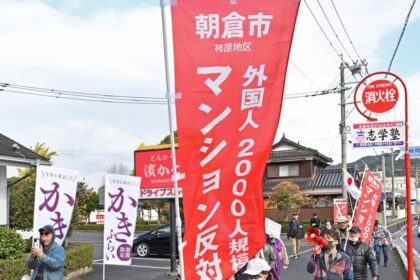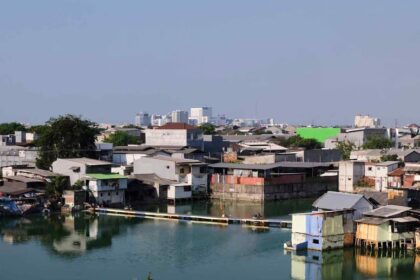Oversight push gains momentum
Hong Kong plans a new code of practice for private and international schools, part of a broader effort to strengthen oversight and restore public confidence after a string of financial and management concerns. Chief Executive John Lee Ka-chiu said authorities will draw up the code and publish a list of compliant schools. Lawmakers who track the sector argue the move is overdue, contending that some private operators have enjoyed light-touch supervision while benefiting from a steady flow of tuition fees and, in some cases, public support such as land grants.
Calls from within the education sector center on two goals. First, align expectations for private and international schools with the transparency and accountability expected of subsidized schools. Second, identify schools with early signs of financial stress or governance weaknesses so that interventions can happen before problems disrupt student learning. Education sector lawmaker Chu Kwok-keung has urged the government to refine supervision mechanisms once the code is introduced, arguing that regular disclosure and a disciplined self evaluation process would improve standards across the board.
Recent closures or scaling down of operations at individual private institutions have added urgency. Parents worry about continuity of learning, loss of prepaid fees, and the availability of alternative school places mid year. There have been reports of Think International School preparing to cease operations on July 31, a case that crystallized concerns about how swiftly authorities can step in and how families are protected when school finances unravel. A public list of compliant schools, paired with clearer rules, aims to reduce the frequency of abrupt surprises and bring greater predictability to a diverse private school market.
What would the new list and code do
The code is expected to specify minimum standards for governance, financial reporting, and school self evaluation. Publishing a list of compliant schools could serve as a simple signal to parents and employers that an institution meets baseline requirements and is under active monitoring. Lawmakers have suggested borrowing proven practices from the Direct Subsidy Scheme, where schools must maintain audited accounts, perform structured self evaluation, and undergo periodic external review. Applying similar habits to private and international schools would not change their curricula or language of instruction, but it would set clearer expectations on how they manage money, engage parents, and respond to risks.
How Hong Kong regulates schools today
All schools in Hong Kong are governed by the Education Ordinance and Education Regulations. Before opening, a school must register with the Education Bureau, appoint qualified managers, and meet health, fire safety, and building requirements. Purpose built campuses are preferred, but conversions are possible if the site meets planning and safety rules. Schools must not exceed approved class sizes or enrollment numbers and must display their registration certificates. These baseline rules apply across the system, including international and private schools that operate outside government subsidy schemes.
Not every education provider is a formal day school. The Education Bureau also oversees private schools offering non formal curriculum, such as specialized learning centers that do not deliver a full day program. The Bureau publishes guidance on these providers and maintains records of contraventions of the Education Ordinance. Parents can consult official resources, including the Bureau’s page for schools offering non formal curriculum, which provides explanatory materials and a record of enforcement actions. See: Education Bureau information on non formal curriculum providers.
How DSS differs and why it is a reference point
DSS schools occupy a middle ground. They are privately run, can charge fees with government approval, and enjoy more flexibility in curriculum and admissions than fully subsidized schools. In return, they follow robust accountability practices. These include annual audits, a structured school self evaluation cycle, external school reviews, and transparent communication of development plans and key data. Advocates of the new code argue that similar habits would help private and international schools demonstrate resilience, reduce the risk of sudden closures, and make fee setting and resource allocation easier to understand for parents.
Why the push now
Several forces have converged. Some private schools have faced management disputes, funding shortfalls, or abrupt changes in leadership. Demographic and economic factors have added strain. Hong Kong’s population fell earlier in the decade, while emigration and a falling birthrate reduced demand in some neighborhoods. Administrators reported noticeable drops in primary intake, with some schools losing a sizable share of students in a single summer. Smaller private schools can be fragile in this environment, especially if they rely on year to year tuition revenue without strong reserves or backing from a larger sponsor.
Policy changes are part of the picture too. In recent years the Education Bureau issued guidance that requires national security education across the system. The policy applies to all school categories, including international and private schools. The guidance stresses that schools must integrate basic national security concepts into lessons and daily life. The Bureau’s message is explicit:
All schools, including international and private ones, have a responsibility to help students understand national security.
The reputational stakes
Hong Kong positions itself as an international education hub that serves local families and the city’s global workforce. Confidence in school governance and continuity is central to that pitch. The government wants families to see a clear distinction between a well managed school that meets defined standards and an operator that might be at risk. A code of practice framed as a baseline for transparency and preparedness, rather than a one size fits all straitjacket, seeks to protect students and reassure employers that the city’s school ecosystem is stable and competitive.
What a code of practice could include
Officials have not released a draft, but education stakeholders point to well understood building blocks that could be adapted for the private and international school sector. The most frequently mentioned elements include financial transparency, structured school evaluation, stronger governance, and clearer safeguards for parents if a school faces distress.
- Regular financial disclosure, including audited annual accounts, management letters, and basic performance indicators such as liquidity and reserve levels.
- A standardized school self evaluation checklist that covers teaching and learning, student support, leadership, parent engagement, and compliance.
- Governance rules that set expectations for board composition, term limits, conflict of interest management, and documented decision making.
- Fee transparency, including how tuition, debentures, and levies are set, and what protections exist for families if a school changes ownership or shuts down.
- Student welfare and safeguarding policies, including vetting of staff and contractors, incident reporting, and periodic training.
- Routine compliance checks on health, safety, and campus capacity, with clear consequences for repeated breaches.
- Contingency planning that outlines continuity of learning, accelerated placement, and refunds in the event of prolonged disruptions or closure.
Early warning and intervention
A workable code would likely include risk indicators that trigger closer monitoring. Examples could include persistent late payments to staff, missed rent or lease obligations, a sudden spike in student withdrawals, or failure to submit audited accounts on time. Authorities could respond in stages, starting with advisory letters and corrective action plans, followed by stronger measures if problems persist. Early detection is cheaper and less disruptive than late stage interventions, which is why advocates stress proactive monitoring and timely engagement with school managers.
Student and parent protection
Families are most exposed when a school runs into trouble mid year. A code of practice can set standards for escrow or insurance of prepaid tuition, transparent refund policies, and teach out commitments when a school closes. It can also require advanced parent notification of material changes in leadership, ownership, fee structure, or accreditation status. When a closure becomes unavoidable, the school should be obliged to provide transcripts, references, and transfer support without delay. These safeguards reduce stress on students and make it easier for authorities and neighboring schools to absorb displaced learners.
Impact on international schools
International schools deliver a wide range of curricula, from the International Baccalaureate to British and American programs, and many hold external accreditation from bodies such as CIS, WASC, or IB. A Hong Kong code of practice would not rewrite those curricula. It would more likely focus on how schools disclose finances, manage governance, and plan for continuity. Schools that already meet rigorous accreditation standards could find many provisions familiar. The main change would be a common, publicly accessible baseline for transparency that lets families compare governance and risk safeguards across different operators.
Staffing and market conditions
The pandemic period produced staffing challenges for schools in Hong Kong and across the region. Travel restrictions, quarantine policies, and uncertainties about border rules made recruitment harder and disrupted day to day operations. A clearer regulatory framework can help schools make staffing offers with confidence and can reassure prospective teachers that the organization is stable, with sound governance and reserves to manage shocks. Stability also matters for retaining key staff, sustaining specialist programs, and preserving the extracurricular experiences that draw many families to international schools in the first place.
Parents and students
Parents want to know whether a school is resilient and well run. A public list of compliant schools would help, but families can also press for clarity now. Ask how the board is constituted, whether audited accounts are shared with parents, what reserves exist, and what contingency plans would look like if the school must relocate, reorganize, or close. For schools that collect debentures or capital levies, request written explanations of how those funds are held and returned. If a school is part of a larger group, understand whether liabilities sit at campus level or at a parent entity.
- Is the school fully registered under the Education Ordinance and does it display current certificates on campus and online
- Does the school publish audited financial statements and an annual report to the community
- How are the board and senior leadership appointed, and how are conflicts of interest handled
- What early warning indicators would the school share with parents if finances come under pressure
- How are tuition, levies, and debentures safeguarded and under what conditions are they refunded
- What accreditations does the school hold and when are the next external reviews
- What is the documented plan to support students if a campus must relocate or wind down
What to watch next
Officials are expected to consult stakeholders before finalizing the code, then publish a clear implementation timetable. The Education Bureau’s plan to release a list of compliant schools will be closely watched, since it will shape parent choices and may influence school reputations. Schools that already operate with high transparency will likely seek early inclusion. Others may need time to upgrade governance or complete external audits. Parents can also make use of existing tools, such as the Bureau’s contravention records for non formal curriculum providers, and monitor official circulars as the code moves from announcement to application.
What to Know
- Hong Kong will create a code of practice for private and international schools and publish a list of compliant institutions.
- Lawmakers want stronger financial disclosure, regular self evaluation, and earlier intervention when risks appear.
- All schools already register under the Education Ordinance, with health, safety, and management requirements enforced by the Education Bureau.
- DSS practices, such as audited accounts and external reviews, are the likely reference point for new expectations.
- Recent school closures and enrollment pressures have heightened concerns about continuity of learning and fee protection.
- National security education applies to all school categories, including international and private schools.
- The code is expected to focus on governance, transparency, and contingency planning, not on rewriting curricula.
- Parents should ask about reserves, audits, board structure, and refund safeguards while awaiting the official compliant school list.












